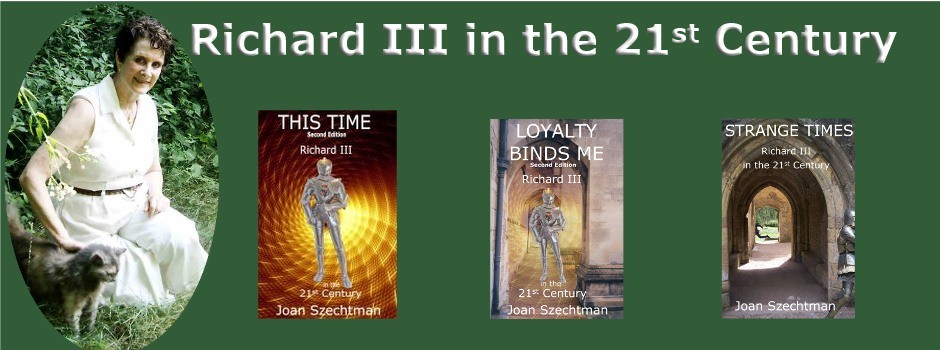Heavy in Heart Speech:
where Richard denies wanting to marry his niece Elizabeth
Anne Neville, Richard’s queen, died after a prolonged illness (tuberculosis) on March 16, 1485. The queen was buried with full honors deserving of a Queen, so recorded the Croyland Chronicles, and Richard wept openly at her funeral. He then shut himself off from the world for three days before resuming his kingly duties.
Shortly before her death, the doctors advised him not to sleep in the same chamber as her, as they feared he would succumb to the same disease, the chance of contagion being great. His niece, Elizabeth of York, and daughter of Edward IV also resided with him and Anne. Apparently, she was very taken with Richard, and wrote to John Howard, Duke of Norfolk, and stated her desire to to marry Richard, asking Howard for his assistance in this matter. Richard was probably aware of Elizabeth’s infatuation and sent her to Sheriff Hutton, where Edward, Earl of Warwick (his brother George, Duke of Clarence’s son) also resided.
The rumor Richard intended to marry his niece, and that he wished for Anne’s death spread and continued past her death. Some rumors had Richard poisoning his queen, which Shakespeare used in his infamous play, ignoring that Anne had been ill for many months, if not years before her death. Richard put an end to the rumor by appearing before the mayor and aldermen of London and declaring publicly he’d no intention to marry Elizabeth or wished for his wife’s death.
From–Mercers’ Company Records, 1485
… as there have been long discussions and much uninformed talk among the people by evil-disposed persons, who have … sown these rumours to the very great displeasure of the king, showing how the queen was poisoned by consent and will of the king, so that he might marry and have to wife the Lady Elizabeth, eldest daughter of his brother, late king of England … the king sent for and had before him [the] mayor and aldermen. And in the great hall, in the presence of many of his lords and many other people, he showed his grief and displeasure, and said it never came into his thought or mind to marry in such manner, nor was he pleased or glad at the death of his queen but as sorry and as heavy in heart as a man would be …
…attribution–English Historical Documents 1327-1485, ed. A.R. Myers, p. 342
